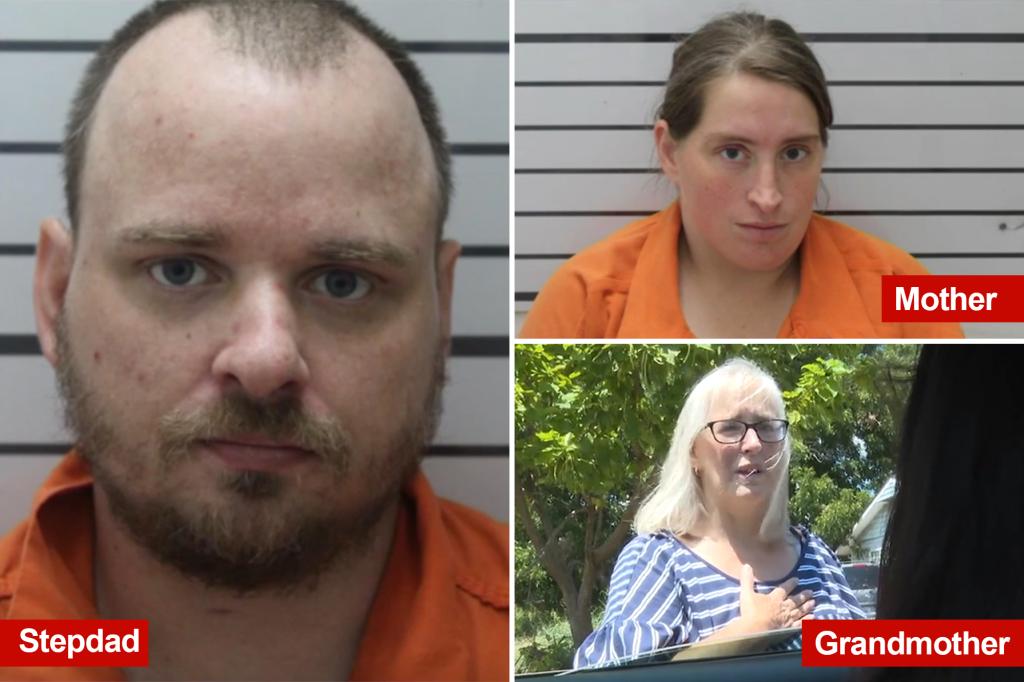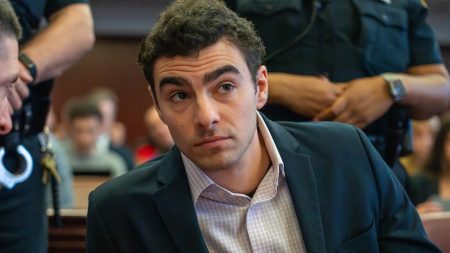A Tragic Case of Child Abuse in Oklahoma
In a deeply disturbing case from Muskogee County, Oklahoma, a family tragedy has unfolded that highlights the devastating consequences of child abuse and neglect. Dustin Walker, 34, and his wife Cherie Walker, 33, are facing severe legal consequences after their 11-year-old stepdaughter gave birth to a child on August 16. What makes this case particularly horrific is that DNA testing has confirmed with 99.9% certainty that Dustin Walker is the father of the newborn. The couple initially claimed they had no knowledge of the young girl’s pregnancy, but prosecutors have brought serious charges against both adults, with potential life sentences hanging in the balance. According to Muskogee County Assistant District Attorney Janet Hutson, this represents “one of the most if not the most serious child sexual abuse and neglect cases” she has ever prosecuted in her career.
The case extends beyond the sexual abuse of the 11-year-old girl to encompass broader concerns about child welfare. The Walkers have been charged with felony child neglect for the deplorable living conditions in which all six of their children—ages 2, 4, 6, 7, 9, and 11—were found. Court documents describe a home where children were living among dog feces and some had no clothing. These shocking conditions prompted authorities to remove all six children from the home on Tuesday. The discovery of these circumstances reveals a pattern of prolonged neglect that affected all the children in the household, creating an environment wholly unsuitable for child development and safety.
The legal proceedings against the Walkers have evolved since their initial arrest. The couple was first taken into custody last week following the 11-year-old’s delivery and charged with felony child neglect. However, once DNA results confirmed Dustin Walker’s paternity, the charges were upgraded significantly. He now faces charges of sexual abuse, while Cherie Walker has been charged with enabling the sexual abuse—a serious accusation suggesting she was aware of or facilitated the abuse of her daughter. Additionally, both parents face child neglect charges that include failing to provide proper medical care to the 11-year-old during childbirth, highlighting the comprehensive nature of their alleged neglect.
Family dynamics surrounding this case have become increasingly complex as relatives attempt to process these disturbing revelations. The maternal grandmother of the 11-year-old victim, who identified herself only as Michelle, has publicly defended her daughter and son-in-law, claiming that “they’ve made my daughter and my son-in-law a monster” and insisting that “they are not. They love those children. They love them.” This defense comes despite the conclusive DNA evidence linking Dustin Walker to the newborn child. Michelle’s statements reflect the difficult emotional terrain families navigate when confronted with evidence of abuse within their circle, often resulting in denial or alternative explanations for what has occurred.
Further complicating the narrative, the grandmother has suggested an alternative explanation for the pregnancy, claiming that her 11-year-old granddaughter has told family members that the father is actually a local 12-year-old boy. “She keeps telling everybody that it was him. They got curious. That’s all I know,” Michelle stated to local media. This claim directly contradicts the scientific evidence presented by prosecutors and may reflect either genuine confusion among family members or attempts to create an alternative narrative in the face of devastating facts. It also potentially indicates the psychological complexity of the situation for the young victim, who may be struggling to process or acknowledge the abuse.
The legal consequences for both Dustin and Cherie Walker could be severe if they are convicted of these charges. Currently held on $100,000 bond each, they are scheduled to appear in court on September 3. According to prosecutor Hutson, both could potentially spend the rest of their lives in prison if found guilty of the charges against them. This case represents not only individual failures but also raises questions about systems designed to protect vulnerable children. The tragedy of a child giving birth at age 11 while living in squalid conditions suggests multiple missed opportunities for intervention that might have prevented this outcome. As the legal process moves forward, the focus must ultimately remain on the welfare and healing of the six children now removed from this environment, especially the 11-year-old victim who now faces the dual trauma of abuse and premature motherhood.












